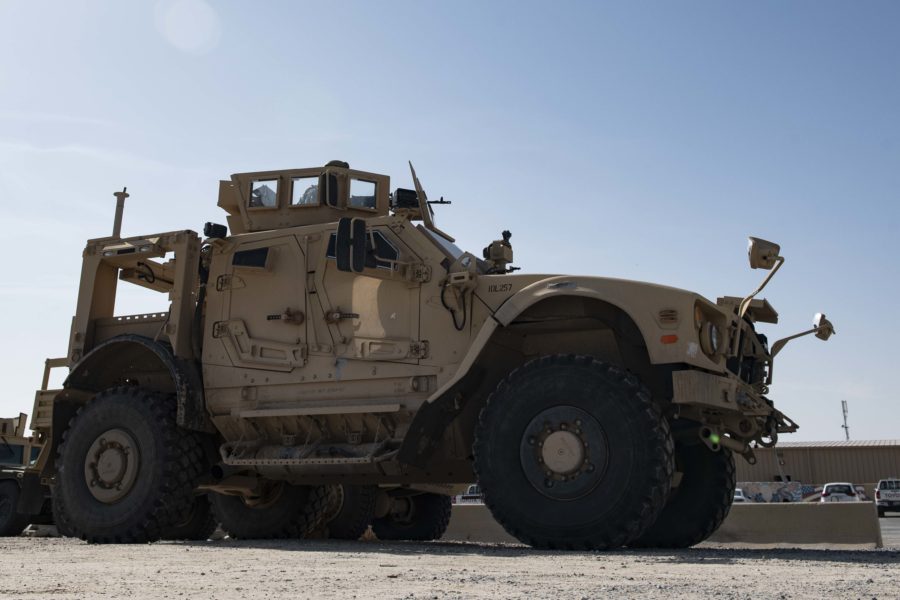Three Security Forces Airmen were not wearing seatbelts and were inexperienced in driving the Mine-Resistant Ambush Protected All Terrain Vehicle when it crashed on Sept. 12, 2020, at Ali Al Salem Air Base, Kuwait, killing one, according to an Air Force investigation.
The crash killed Senior Airman Jason Khai Phan, 26, of Anaheim, Calif. Phan was assigned to the 66th Security Forces Squadron at Hanscom Air Force Base, Mass., and was deployed to the 386th Expeditionary Security Forces Squadron. It was one of two fatal crashes within days at the Kuwait base.
An Air Force Ground Investigation Board report, released April 5, outlined a culture of lackadaisical seatbelt use reported by some in the squadron, and a lack of oversight for training on the M-ATVs, which saw increased use just before the incident due to “local threats” at the base.
Late Sept. 11, the team of three Airmen loaded into the M-ATV for a 12-hour shift patrolling the area outside the sprawling Kuwait base. Phan was a passenger in the vehicle, which was driven by an Airman who completed local training on the M-ATV the same day the group set out for the patrol.
At about 9 a.m. on Sept. 12, the team was driving on a hard-packed rock and sand road about 2 kilometers from the base when the driver felt the M-ATV pull to the right, like it was getting stuck in sand. To compensate, the driver pulled to the left, and the vehicle then veered left, and the driver lost control.
The M-ATV moved in a serpentine fashion for 100-200 yards, then began to skid at about 43 mph before flipping over and rolling 1.25 rotations before coming to rest on the driver’s side with the back door ripped open. Phan was tossed from the vehicle through the back door, and the other Airman in the vehicle—the truck commander—rushed to him and concluded he had suffered fatal injuries.
The Airman used her personal cell phone to call other Security Forces Airmen to come help, using coordinates from an app to direct them. The other teams in pickup trucks reported the incident to the base’s defense operations center, which dispatched medical support. An ambulance had to follow a SF pickup truck to the incident site, and en route it got stuck on a sand dune. Medical personnel then took the gear they needed from the ambulance and rode in the guide vehicle to the scene, where they pronounced Phan dead.
Investigators, in interviews with members of the squadron, reported a relaxed approach to personal safety and training in the vehicles.
Airmen provided a “wide range of responses” to questions about the culture of safety leading up to the incident, with some saying they would usually buckle the five-point harnesses behind them in the M-ATVs to turn off the seat belt alarm and make it easier to get out.
Additionally, the Airmen in the mishap did not wear their helmets and most of the doors to the vehicle were not locked.
Most of the patrols at Ali Al Salem were conducted using conventional Toyota Hilux pickup trucks, but in the weeks before the incident, leadership directed the use of more M-ATVs per shift because of local threats. However, squadron leadership provided “little involvement or oversight” for local training on the vehicles, according to the investigation. Trainers, who were qualified to instruct, were not appointed by a commander, and did not follow the 47-hour training plan. At least one witness said they expected more experienced drivers to take the first-time operators out, but the flight chief who made the schedule reported not having access to experience levels when making the schedule, the report states.
